 On World Refugee Day 2025, Friday 20 June, the new Maternal and Infant Health Equity Research Centre (MIHERC) website was launched. MIHERC is a hub for research, collaboration and action on maternal and infant health equity. MIHERC) is a collaborative effort between Sheffield Hallam University, Bournemouth University and City of Doncaster Council working to reduce health inequalities for mothers and babies. This year’s World Refugee Day’s theme, hashtagSolidarity, reflects MIHERC’s mission to stand with all mothers and babies – especially those facing health and social inequalities or barriers to care.
On World Refugee Day 2025, Friday 20 June, the new Maternal and Infant Health Equity Research Centre (MIHERC) website was launched. MIHERC is a hub for research, collaboration and action on maternal and infant health equity. MIHERC) is a collaborative effort between Sheffield Hallam University, Bournemouth University and City of Doncaster Council working to reduce health inequalities for mothers and babies. This year’s World Refugee Day’s theme, hashtagSolidarity, reflects MIHERC’s mission to stand with all mothers and babies – especially those facing health and social inequalities or barriers to care.
Tagged / Maternal Health
Reaching 10,000 reads!
Last Sunday ResearchGate informed us that the paper ‘Health facility preparedness of maternal and neonatal health services: a survey in Jumla, Nepal‘ [1] published in the international journal BMC Health Services Research had been read 10,000 times. In this paper, which is in an Open Access journal, Pasang reports on a cross-sectional study conducted in 2019 covering all 31 state health facilities in a district of Nepal to assess the availability of maternal and neonatal health services including appropriate workforce and access to essential medicines. 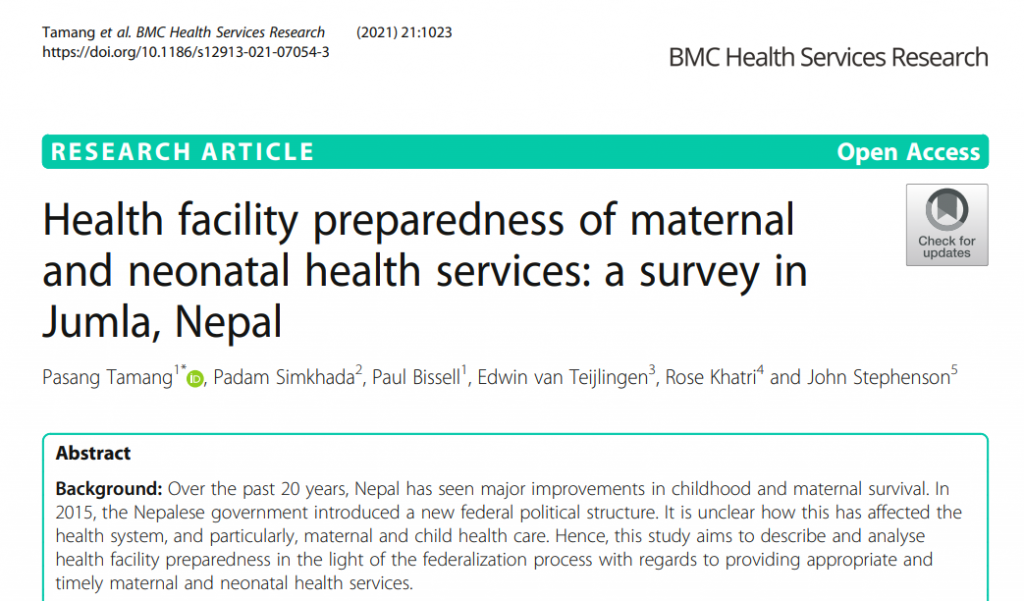 Tests of association between demographic factors and the probability of a facility experiencing a shortage of essential medicine within the last 3 months were also conducted as exploratory procedures. Overall health facilities reported better availability of staff than of drugs. The authors concluded that health facilities in Nepals should be supported to meet required minimal standards such as availability of essential medicines and the provision of emergency ambulance transport for women and newborns. This paper was part of Dr. Pasang Tamang’s Ph.D. project at the University of Huddersfield, which resulted in four other related publications [2-5]. Pasang is currently working as a Lecturer in Public Health in the School of Human Sciences at the University of Greenwich.
Tests of association between demographic factors and the probability of a facility experiencing a shortage of essential medicine within the last 3 months were also conducted as exploratory procedures. Overall health facilities reported better availability of staff than of drugs. The authors concluded that health facilities in Nepals should be supported to meet required minimal standards such as availability of essential medicines and the provision of emergency ambulance transport for women and newborns. This paper was part of Dr. Pasang Tamang’s Ph.D. project at the University of Huddersfield, which resulted in four other related publications [2-5]. Pasang is currently working as a Lecturer in Public Health in the School of Human Sciences at the University of Greenwich.

Prof. Edwin van Teijlingen

References:
- Tamang, P., Simkhada, P., Bissell, P., van Teijlingen, E., Khatri, R., Stephenson, J. (2021) Health facility preparedness of maternal and neonatal health services: A survey in Jumla, Nepal, BMC Health Service Research, 21:1023. https://rdcu.be/cyD01
- Tamang, P., Mahato, P., Simkhada P., Bissell, P., van Teijlingen, E. (2021) Pregnancy, Childbirth, Breastfeeding and Coronavirus Disease: What is known so far? Journal of Midwifery Association of Nepal (JMAN) 2(1): 96-101.
- Tamang, P., Simkhada, B, Simkhada, P., van Teijlingen, E. (2023) Quality of care in maternal and neonatal health in Jumla, rural Nepal: Women’s perspective. Fields: Journal of Huddersfield student research, 1(1). https://doi.org/10.5920/fields.1271
- Mahato, P., Tamang, P., Simkhada, B., Wasti, S. P., Devkota, B., Simkhada, P., van Teijlingen, E.R. (2022) Reflections on health promotion fieldwork in Nepal: Trials and tribulations. Journal of Health Promotion 10(1): 5–12. https://doi.org/10.3126/jhp.v10i1.50978
- Tamang, P., Mahato, P., Shahi, P., Simkhada, P., van Teijlingen, E., Amgain, K. (2020) COVID-19 Quarantine: A Key Part of Prevention in Nepal. Journal of Karnali Academy of Health Sciences 3(1):1-14.
BU graduate’s paper read 600 times
Today ResearchGate informed us that the academic paper `Whose Shoes?` Can an educational board game engage Ugandan men in pregnancy and childbirth? published in 2018 by former Ph.D. student Dr. Alice Ladur has been read 600 times. The paper appeared in the Open Access journal BMC Pregnancy & Childbirth. Alice was based in the Centre for Midwifery and Women Health (CMWH) and supervised by professors Vanora Hundley and Edwin van Teijlingen.
Men can play a significant role in reducing maternal morbidity and mortality in low-income countries such as Uganda. Maternal health programmes are increasingly looking for innovative interventions to engage men to help improve health outcomes for pregnant women. Educational board games offer a unique approach to present health information where learning is reinforced through group discussions supporting peer-to-peer interactions. Alice conducted interviews with men from Uganda currently living in the UK on their views of an educational board game. Men were asked their perceptions on whether a board game was relevant as a health promotional tool in maternal health prior to implementation in Uganda.
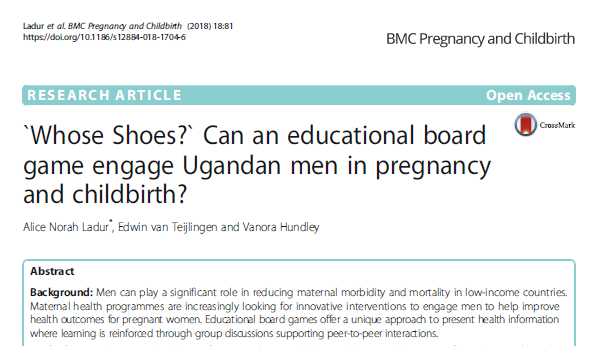 The results of the pilot study were promising; participants reported the use of visual aids and messages were easy to understand and enhanced change in perspective. Men in this study were receptive on the use of board games as a health promotional tool and recommended its use in rural Uganda. The paper concluded that key messages from the focus group appeared to be that the board game is more than acceptable to fathers and that it needs to be adapted to the local context to make it suitable for men in rural Uganda
The results of the pilot study were promising; participants reported the use of visual aids and messages were easy to understand and enhanced change in perspective. Men in this study were receptive on the use of board games as a health promotional tool and recommended its use in rural Uganda. The paper concluded that key messages from the focus group appeared to be that the board game is more than acceptable to fathers and that it needs to be adapted to the local context to make it suitable for men in rural Uganda

Prof. Edwin van Teijlingen

Reference:
- Ladur, A.N., van Teijlingen, E. & Hundley, V. `Whose Shoes?` Can an educational board game engage Ugandan men in pregnancy and childbirth?. BMC Pregnancy Childbirth 18, 81 (2018). https://doi.org/10.1186/s12884-018-1704-6
Nepal research published
 Yesterday saw the publication of a new scientific paper on the health care system in Nepal. The latest BU paper ‘Health facility preparedness of maternal and neonatal health services: A survey in Jumla, Nepal’ is a collaboration between academics at the University of Huddersfield, Liverpool John Moores University and the Centre for Midwifery, Maternal & Perinatal Health (CMMPH) at Bournemouth University [1]. This is the third paper led by Pasang Tamang, who is currently a PhD student at the University of Huddersfield [2-3].
Yesterday saw the publication of a new scientific paper on the health care system in Nepal. The latest BU paper ‘Health facility preparedness of maternal and neonatal health services: A survey in Jumla, Nepal’ is a collaboration between academics at the University of Huddersfield, Liverpool John Moores University and the Centre for Midwifery, Maternal & Perinatal Health (CMMPH) at Bournemouth University [1]. This is the third paper led by Pasang Tamang, who is currently a PhD student at the University of Huddersfield [2-3].
Prof. Edwin van Teijlingen
CMMPH
References
- Tamang, P., Simkhada, P., Bissell, P., van Teijlingen, E., Khatri, R., Stephenson, J., (2021) Health facility preparedness of maternal and neonatal health services: A survey in Jumla, Nepal, BMC Health Service Research 21:1023. https://rdcu.be/cyD01
- Tamang, P., Mahato, P., Simkhada P., Bissell, P., van Teijlingen, E. (2021) Pregnancy, Childbirth, Breastfeeding and Coronavirus Disease: What is known so far? Journal of Midwifery Association of Nepal (JMAN) 2(1): 96-101.
- Tamang, P., Mahato, P., van Teijlingen E, Simkhada, P. (2020) Pregnancy and COVID-19: Lessons so far, Healthy Newborn Network [14 April] healthynewbornnetwork.org/blog/pregnancy-and-covid-19-lessons-so-far/
New CMMPH midwifery paper
Today the European Journal of Midwifery published our paper ‘Midwives’ views towards women using mHealth and eHealth to self-monitor their pregnancy: A systematic review of the literature’. There are many apps to help women to monitor aspects of their own pregnancy and maternal health. This literature review aims to understand midwives’ perspectives on women self-monitoring their pregnancy using eHealth and mHealth, and establish gaps in research. mHealth (mobile health) is the use of mobile devices, digital technologies for health, health analytics, or tele-health, whilst eHealth (electronic health) is the health care supported by electronic processes.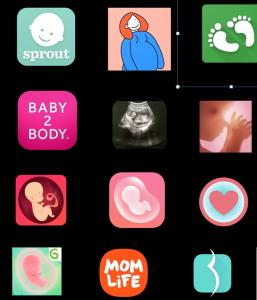
It established that midwives generally hold ambivalent views towards the use of eHealth and mHealth technologies in antenatal care. Often, midwives acknowledged the potential benefits of such technologies, such as their ability to modernise antenatal care and to help women make more informed decisions about their pregnancy. However, midwives were quick to point out the risks and limitations of these, such as the accuracy of conveyed information, and negative impacts on the patient-professional relationship. The authors conclude that with COVID-19 making face-to-face maternity service provision more complicated and with technology is continuously developing, there is a compelling need for studies that investigate the role of eHealth and mHealth in self-monitoring pregnancy, and the consequences this has for pregnant women, health professionals and organisations, as well as midwifery curricula.
Prof. Edwin van Teijlingen
Centre for Midwifery, Maternal & Perinatal Health (CMMPH)
Reference:
- Vickery, M., Way, S., Hundley, V., Smith, G., van Teijlingen, E., Westwood G. (2020) Midwives’ views women’s use of mHealth and eHealth to self-monitor their pregnancy: A systematic review of the literature, European Journal of Midwifery 4: 36 DOI: https://doi.org/10.18332/ejm/126625
Latest Nepal publication CMMPH
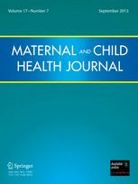 In early December the Maternal & Child Health Journal accepted our latest research paper on maternity care based in Nepal [1]. The first author, Amrit Banstola, is based in Nepal and this exciting paper is co-authored with several Nepal-based collaborators as well as BU Visiting Faculty Prof. Padam Simkhada. Prof. Simkhada recently moved from Liverpool John Moores University to the University of Huddersfield. The target journal Maternal & Child Health Journal has an Impact Factor of 1.736.
In early December the Maternal & Child Health Journal accepted our latest research paper on maternity care based in Nepal [1]. The first author, Amrit Banstola, is based in Nepal and this exciting paper is co-authored with several Nepal-based collaborators as well as BU Visiting Faculty Prof. Padam Simkhada. Prof. Simkhada recently moved from Liverpool John Moores University to the University of Huddersfield. The target journal Maternal & Child Health Journal has an Impact Factor of 1.736.
The Government of Nepal is trying to expand and improve the quality of maternal and neonatal health service delivery in more remote areas of the country. However, relatively little is known about the preparedness of maternity care facilities to providing Emergency Obstetric Care (EmOC) in remote and rural areas. In order to achieve improvement maternal health services in one remote district to help achieve the sustainable development goals (SDGs). Our study assesses what birthing centres exist and how ready these are to provide EmOC services in Taplejung District.
Centre for Midwifery, Maternal & Perinatal Health
Reference:
- Banstola, A., Simkhada, S., van Teijlingen, E., Bhatta, S., Lama, S., Adhikari, A, Banstola A., The availability of emergency obstetric care in birthing centres in rural Nepal: A cross-sectional survey, Maternal & Child Health Journal. (accepted).
New collaborative paper BU-NHS colleagues
 The month saw the publication of the latest collaborative paper between FHSS academics, BU Visiting Faculty and NHS clinicians. Our paper ‘Design errors in vital sign charts used in consultant-led maternity units in the United Kingdom’ [1] is available for a free download from Elsevier until August 28, 2019. Till then no sign up, registration or fees are required, click here.
The month saw the publication of the latest collaborative paper between FHSS academics, BU Visiting Faculty and NHS clinicians. Our paper ‘Design errors in vital sign charts used in consultant-led maternity units in the United Kingdom’ [1] is available for a free download from Elsevier until August 28, 2019. Till then no sign up, registration or fees are required, click here.
The authors, as part of the Modified Obstetric Warning Score (MObs) Research Group, lead by BU Visiting Faculty Richard Isaac, argue that obstetric observation charts in the UK contain poor design features. These charts have common errors such as an inappropriate use of colour, poor alignment and axes labelling. Consequently, these design errors render charts difficult to use and could compromise patient safety. The article calls for an evidence-based, standardised obstetric observation chart, which should integrate ‘human factors’ and user experience.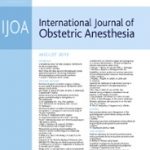
This research team, earlier published ‘Vital signs and other observations used to detect deterioration in pregnant women: Analysis of vital sign charts in consultant-led maternity units’. [2]
References:
- Isaacs, R., Smith, G., Gale-Andrews, L., Wee, M., van Teijlingen, E., Bick, D.E., Hundley, V. on behalf of the Modified Obstetric Warning Score (MObs) Research Group. (2019) Design errors in vital sign charts used in consultant-led maternity units in the United Kingdom, International Journal of Obstetric Anesthesia 39:60-67.
- Smith, G., Isaacs, R., Gale-Andrews, L., Wee, M., van Teijlingen, E., Bick, D., Hundley, V. (2017) Vital signs and other observations used to detect deterioration in pregnant women: Analysis of vital sign charts in consultant-led maternity units. International Journal of Obstetric Anesthesia 30: 44-51.
Congratulations to PhD student Alice Ladur
 FHSS PhD student Alice Ladur has been awarded a small but very competitive grant by FfWG, the Funds for Women Graduates. FfWG is the trading name of the BFWG Charitable Foundation and the BFWG (British Federation of Women Graduates), which is affiliated to the International Federation of University Women.
FHSS PhD student Alice Ladur has been awarded a small but very competitive grant by FfWG, the Funds for Women Graduates. FfWG is the trading name of the BFWG Charitable Foundation and the BFWG (British Federation of Women Graduates), which is affiliated to the International Federation of University Women.
Alice is based in the Centre for Midwifery, Maternal & Perinatal Health (CMMPH). Her PhD research in Uganda is supervised by Prof. Vanora Hundley and Prof. Edwin van Teijlingen. Her thesis research has already resulted in an academic paper published in the international journal BMC Pregnancy & Childbirth, which Open Access.
Nepal paper by Lesley Milne (CMMPH)
Congratulations to Lesley Milne, senior lecturer in midwifery, on the acceptance of her latest paper on maternity care in Nepal. This new paper ‘Gender inequali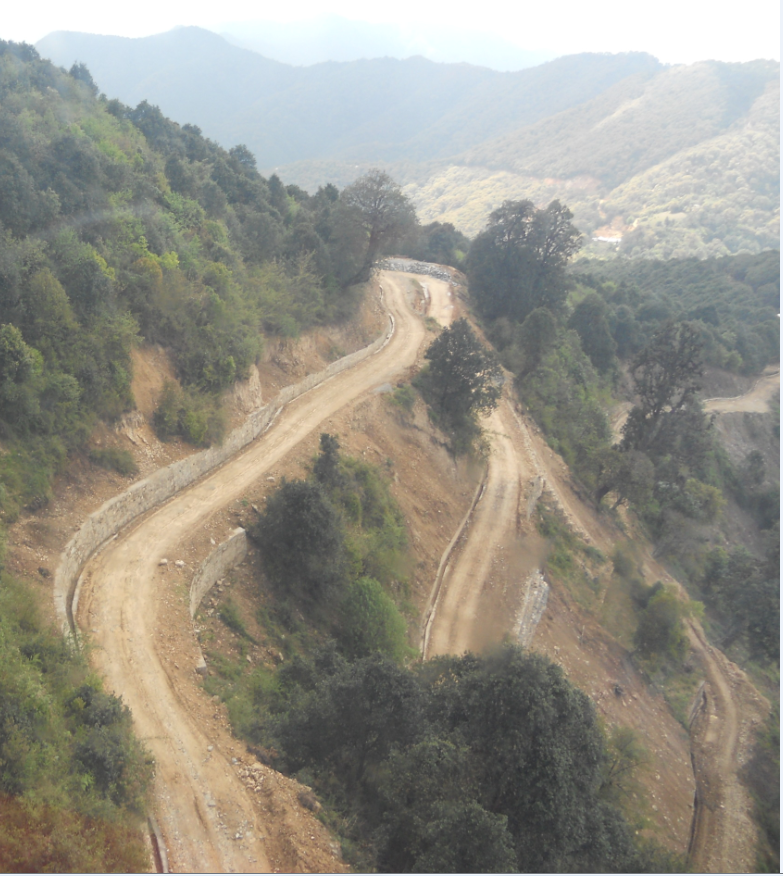 ties and childbearing: A qualitative study of two maternity units in Nepal’ will appear soon in the Open Access publication: Journal of Asian Midwives [1]. This is the second publication from a qualitative research study undertaken in two birthing facilities in Kathmandu Valley to examine barriers to women accessing these services from the perspective of hospital staff [2].
ties and childbearing: A qualitative study of two maternity units in Nepal’ will appear soon in the Open Access publication: Journal of Asian Midwives [1]. This is the second publication from a qualitative research study undertaken in two birthing facilities in Kathmandu Valley to examine barriers to women accessing these services from the perspective of hospital staff [2].
The study received financial support from Wellbeing of Women and the RCM (Royal College of Midwives) as Lesley won their first International Fellowship Award. The study was a collaboration led by Lesley in the Centre for Midwifery, Maternal & Perinatal Health (CMMPH) with two of FHSS’s Visiting Faculty, namely Prof. Padam Simkhada who is based at Liverpool John Moores University and Jillian Ireland, Professional Midwifery Advocate based at Poole NHS Hospitals Foundation Trust.
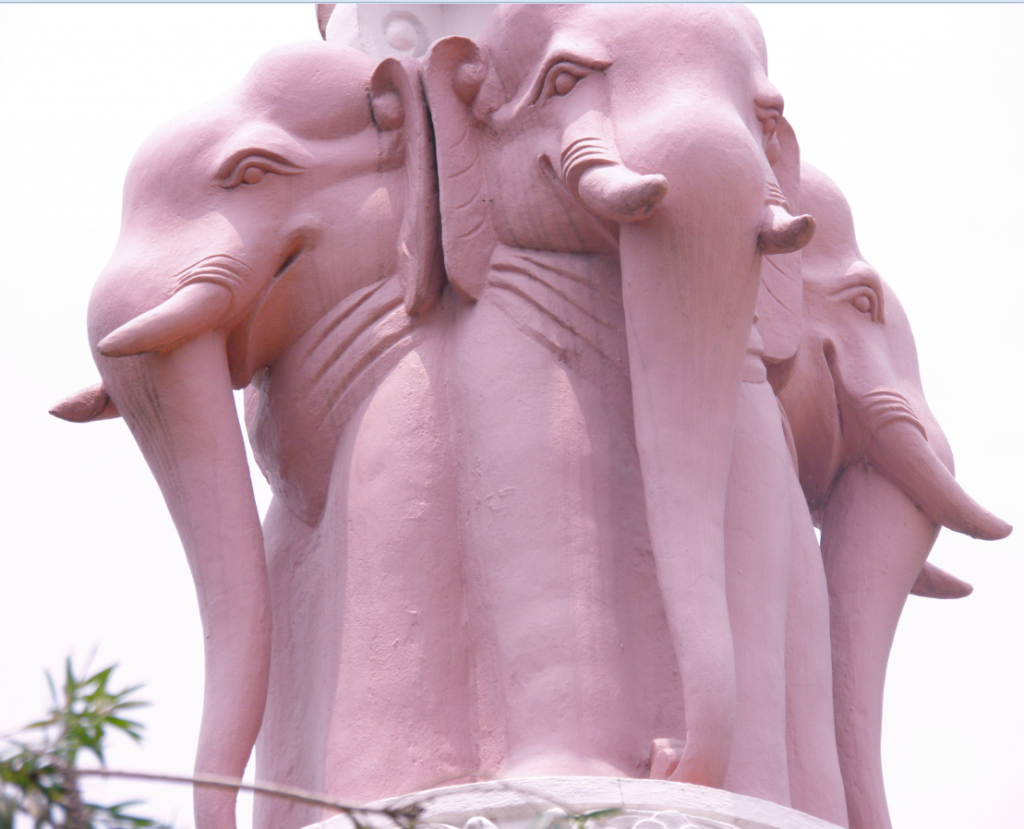
Well done!
Profs. Vanora Hundley & Edwin van Teijlingen
References
- Milne, L., Ireland, J., van Teijlingen, E., Hundley, V., Simkhada, P.P. (2018) Gender inequalities and childbearing: A qualitative study of two maternity units in Nepal, Journal of Asian Midwives (accepted).
- Milne, L., van Teijlingen, E., Hundley, V., Simkhada, P., Ireland, J. (2015) Staff perspectives of barriers to women accessing birthing services in Nepal: A qualitative study BMC Pregnancy & Childbirth 15:142 www.biomedcentral.com/1471-2393/15/142 .
Photo of the Week: The researcher as tourist: “Photographing the photographer”
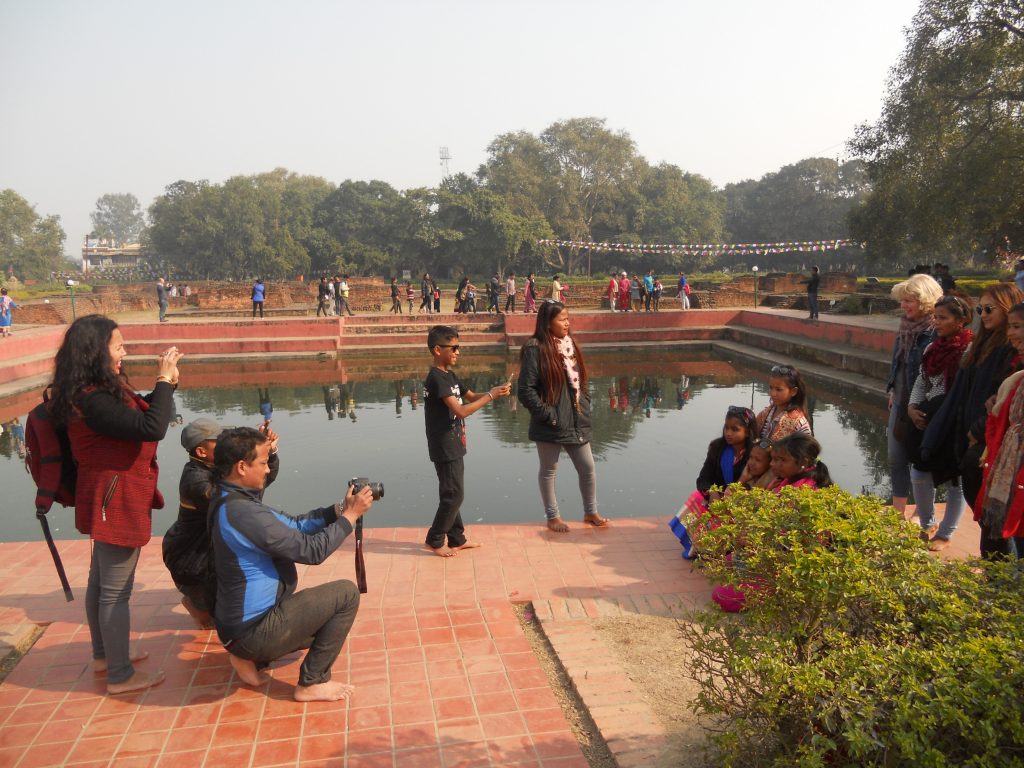
The researcher as tourist: “Photographing the photographer”
Our next Photo of the Week is Edwin van Teijlingen‘s photo taken in the Nawalparasi district of Nepal. This weekly series features photo entries taken by our academics, students and professional staff for our annual Research Photography Competition, which gives a glimpse into some of the fantastic research undertaken across the BU community.
In early 2017, Bournemouth University led the last of six one-day training sessions in Nepal. This project in improving maternal mental health involved bringing UK volunteers to this South-Asian country to do the training. The training was conducted jointly by UK volunteers and Nepali-speaking trainers and translators. The project, under the Health Partnership Scheme (HPS), was funded by the UK Department for International Development (DfID) and managed by THET (Tropical Health & Education Trust).
The project centred on Auxiliary Nurse Midwives working in birthing centres in Nawalparasi. This is relatively poor a district in the south of Nepal, bordering India. Since the training site was very close to Lumbini, the birthplace of Buddha, we always tried to take volunteers there for a visit. This photo was taken just outside of the main building (not in view). It shows many Nepali visitors to the site trying to get a photograph of, or be in a photograph with, our fair-haired Scottish volunteer, Dr. Flora Douglas.
Edwin van Teijlingen is a Professor of Reproduction Health. For more information about this research, please contact Edwin here.

Congratulations to two FHSS PhD students
 Congratulations to two Faculty of Health & Social Sciences PhD students, Preeti Mahato and Elizabeth Waikhaka, who co-authored a paper published in the WHO South-East Asia Journal of Public Health. Their paper is called ‘Social autopsy: a potential health-promotion tool for preventing maternal mortality in low-income countries’.[1] Co-authors include Dr. Puspa Pant from the Centre for Child and Adolescent Health, University of the West of England (Bristol) and Dr. Animesh Biswas based at the Reproductive & Child Health Department, Centre for Injury Prevention & Research, Bangladesh (CIPRB) in the capital of Bangladesh, Dhaka.
Congratulations to two Faculty of Health & Social Sciences PhD students, Preeti Mahato and Elizabeth Waikhaka, who co-authored a paper published in the WHO South-East Asia Journal of Public Health. Their paper is called ‘Social autopsy: a potential health-promotion tool for preventing maternal mortality in low-income countries’.[1] Co-authors include Dr. Puspa Pant from the Centre for Child and Adolescent Health, University of the West of England (Bristol) and Dr. Animesh Biswas based at the Reproductive & Child Health Department, Centre for Injury Prevention & Research, Bangladesh (CIPRB) in the capital of Bangladesh, Dhaka.
The authors argue that verbal autopsy is used to attribute a clinical cause to a maternal death. The aim of social autopsy is to determine the non-clinical contributing factors. A social autopsy of a maternal death is a group interaction with the family of the deceased woman and her wider local community, where facilitators explore the social causes of the death and identify improvements needed. Although still relatively new, the process has proved useful to capture data for policy-makers on the social determinants of maternal deaths. This article highlights the potential role of social autopsy in health promotion.
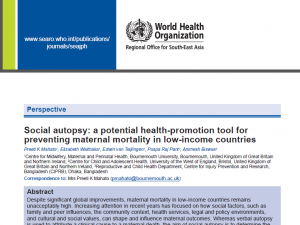
Reference:
- Mahato, P.K, Waithaka, E., van Teijlingen, E., Pant, P.R., Biswas, A. (2018) Social autopsy: a potential health-promotion tool for preventing maternal mortality in low-income countries. WHO South-East Asia Journal of Public Health 7(1): 24–28.
CMMPH PhD student published in BMC Pregnancy & Childbirth
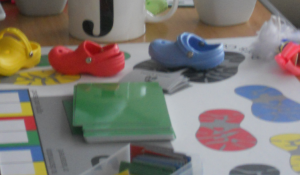 Today BMC Pregnancy & Childbirth published the latest paper by a PhD student at Bournemouth University. Our congratulations go to Alice Ladur in the Centre for Midwifery, Maternal & Perinatal Health (CMMPH), who published `Whose Shoes?’ Testing an educational board game with men of African descent living in the United Kingdom [1]. This paper is based on her PhD research and co-authored with her supervisors.
Today BMC Pregnancy & Childbirth published the latest paper by a PhD student at Bournemouth University. Our congratulations go to Alice Ladur in the Centre for Midwifery, Maternal & Perinatal Health (CMMPH), who published `Whose Shoes?’ Testing an educational board game with men of African descent living in the United Kingdom [1]. This paper is based on her PhD research and co-authored with her supervisors.
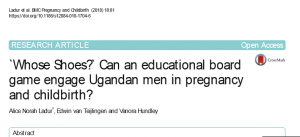 The paper addresses issues around men’s involvement in programmes or interventions aimed at the improvement of maternal health. One such innovative intervention is an educational board game which offers a unique approach to present health information where learning is reinforced through group discussions supporting peer-to-peer interactions. The authors would like to thank Gill Phillips for permission to use the Whose Shoes? board game and all participants for their participation in the PhD study.
The paper addresses issues around men’s involvement in programmes or interventions aimed at the improvement of maternal health. One such innovative intervention is an educational board game which offers a unique approach to present health information where learning is reinforced through group discussions supporting peer-to-peer interactions. The authors would like to thank Gill Phillips for permission to use the Whose Shoes? board game and all participants for their participation in the PhD study.
Alice PhD is focused on Uganda and this particular paper reports a qualitative study with men from Uganda who live in the UK on their views of an educational board game. This pilot study explored perceptions on whether a board game was relevant as a health promotional tool in maternal health prior to implementation in Uganda.

Reference:
- Ladur, A.N., van Teijlingen, E., Hundley, V. (2018) `Whose Shoes?’ Testing an educational board game with men of African descent living in the United Kingdom, BMC Pregnancy & Childbirth 18:81. http://rdcu.be/JXs0
CMMPH student wins The Postgraduate Research Prize
Ms. Sheetal Sharma who will be graduating from Bournemouth University with a Ph.D. on November 10th has been awarded Bournemouth University’s The Postgraduate Research Prize. This prize is for the postgraduate student whose achievement is deemed by the Vice-Chancellor to have been most outstanding in their time at BU.
Sheetal stood out as a Ph.D. student as her maternal health research project in Nepal resulted in several many publications [1-6], some in very prestigious journals such as BMC Pregnancy & Childbirth [4] and PLOSOne [5] . She won the best poster prize at the international GLOW conference in Birmingham in 2013 with the poster presentation ‘Getting women to care in Nepal: A Difference in Difference analysis of a health promotion intervention’. She won a SBSP travel scholarship to present a poster at the 8th European Congress on Tropical Medicine & International Health in 2013 in Denmark. Sheetal’s abstract of the poster was also officially published [7].
Sheetal presented at the Science in Society conference (SiS) at Berkeley University in November 2012 where she received a Graduate Scholar Award. In addition, she won a Santander travel scholarships for £5,000 to learn about research at the University of Buenos Aires, Institute for Clinical Effectiveness & Health Policy (Argentina) and at the University of Barcelona in Spain. This scholarship resulted in a great publication with the world-famous researcher in reproductive health care prof. Jose Belizan as co-author. Sheetal also presented her work at the first ever national health promotion conference in Nepal.
Sheetal also had less academic achievements as she won the BU photo competition at the 2014 PGR conference with the photo in this blog. 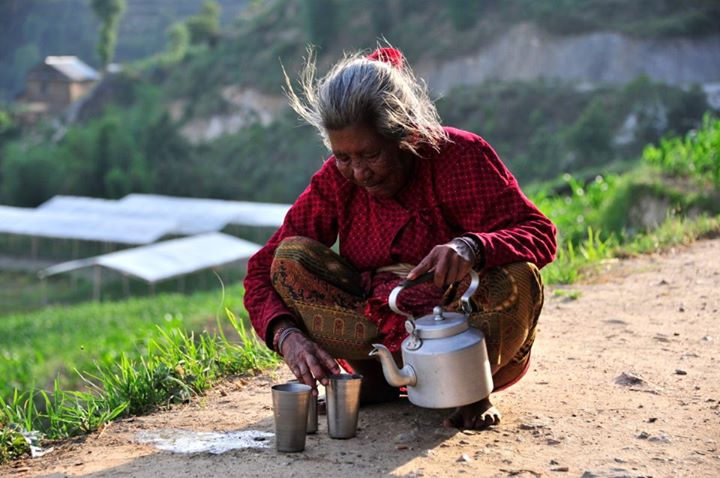
Sheetal was also actively involved as a student representative in the Faculty of Health & Social Sciences as well as in the Graduate School. She even found time to join the editorial board of the newly formed Journal of Asian Midwives.
Over the past five years Sheetal has had many mentions on this BU research blog as one of BU’s most prolific publishing PhD students.
As supervisors and co-authors we are proud of her!
Dr. Catherine Angell, Prof. Vanora Hundley & Prof. Edwin van Teijlingen (CMMPH)
BU Visiting Professor Padam Simkhada, Liverpool John Moores University
Dr. Elisa Sicuri, Assistant Research Professor at ISGlobal, Spain
Prof. Jose Belizan, University of Buenos Aires, Argentina
References to published work by Sheetal Sharma:
- Joshi, R., Sharma, S., van Teijlingen, E. (2013) Improving neonatal health in Nepal: Major challenges to achieving Millennium Development Goal 4, Health Science Journal 7(3): 247-257. http://www.hsj.gr/index.files/Page1421.htm
- Sharma, S., Joshi, P., van Teijlingen, E. (2015) ‘Nepenglish’ or ‘Nepali English’: A new version of English? Asian Journal of Humanities & Social Sciences 4(2): 188-193. www.ajssh.leena-luna.co.jp/AJSSHPDFs/Vol.4%282%29/AJSSH2015%284.2-21%29.pdf
- Simkhada, B., Sharma, S., van Teijlingen, E., Silwal, RC, Simkhada, P. (2015) Exploring Maternal Mortality Reduction. In: Wasti, SP, Simkhada, PP, van Teijlingen, E. (Eds.) The Dynamics of Health in Nepal, Kathmandu: Social Science Baha & Himal Books: 95-121.
- Sharma, S., van Teijlingen, E., Belizán, J.M., Hundley, V., Simkhada, P., Sicuri, E. (2016) Measuring What Works: An impact evaluation of women’s groups on maternal health uptake in rural Nepal, PLOS One 11(5): e0155144 http://journals.plos.org/plosone/article?id=10.1371%2Fjournal.pone.0155144
- Sharma, S., van Teijlingen, E., Hundley, V., Angell, C., Simkhada, P. (2016) Dirty and 40 days in the wilderness: Eliciting childbirth and postnatal cultural practices and beliefs in Nepal BMC Pregnancy & Childbirth 16: 147 https://bmcpregnancychildbirth.biomedcentral.com/articles/10.1186/s12884-016-0938-4
- Sharma, S, Simkhada, P, Hundley, V, van Teijlingen E., Stephens, J, Silwal, RC, Angell, C (2017) Evaluating a Community Maternal Health Programme: Lessons Learnt. Journal Asian Midwives 4(1):3–20.
- Sharma, S., van Teijlingen, E., Hundley, V., Stephens J., Simkhada, P., Angell, C., Sicuri, E., Belizan, J.M. (2013) Mixed-methods evaluation of a maternity care intervention in rural Nepal: measuring what works, Poster P.2.3.004 (A), Tropical Medicine & International Health 18 (Suppl. 1): 108–231.
Two BU authored chapters in new book on childbirth
BU Ph.D. student and Consultant Midwife Kathryn Gutteridge and Hannah Dahlen Associate Professor of Midwifery at the University of Western Sydney contributed a chapter to the book ‘The Roar behind the Silence: Why kindness, compassion and respect matter in maternity care’. Kathryn Gutteridge and Hannah Dahlen wrote under the title ‘Stop the fear and embrace birth’. BU’s Dr. Jenny Hall also wrote a chapter called ‘Spirituality, compassion and maternity care’.
The volume edited by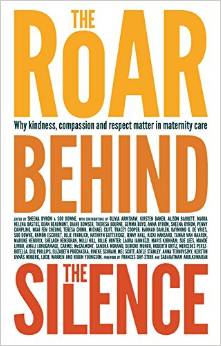 Sheena Byrom and Soo Downe was published this week by Pinter & Martin (London). I received my copy of the book yesterday, but didn’t have a chance to look at it until today. The Roar Behind the Silence is both a practical and inspirational book, which likely to be of interest to people working in maternity care (midwives, doctors, managers), local and regional maternity-care policy-makers as well as politicians and funders and, of course, to many pregnant women and maternity-care pressure groups. The book highlights examples of good practice, and offers practical tools for making change happen, advice on how to use evidence and real-life stories.
Sheena Byrom and Soo Downe was published this week by Pinter & Martin (London). I received my copy of the book yesterday, but didn’t have a chance to look at it until today. The Roar Behind the Silence is both a practical and inspirational book, which likely to be of interest to people working in maternity care (midwives, doctors, managers), local and regional maternity-care policy-makers as well as politicians and funders and, of course, to many pregnant women and maternity-care pressure groups. The book highlights examples of good practice, and offers practical tools for making change happen, advice on how to use evidence and real-life stories.
Prof. Edwin van Teijlingen
CMMPH
BU’s best wishes to Dr. Padam Simkhada (HSC Visiting Faculty)
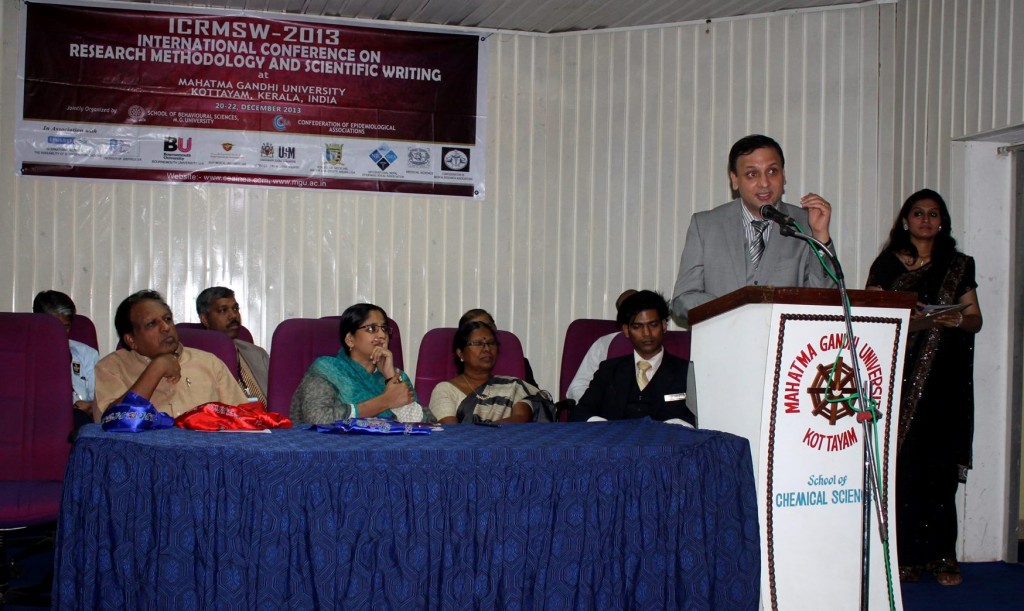
Dr Padam Simkhada, senior lecturer in ScHARR at the University of Sheffield was awarded the CEA Award of Global Health Research for his contribution to global research at a special ceremony at the Mahatma Gandhi University, India just before last Christmas. Dr Simkhada has been Visiting Faculty at BU in the School of Health & Social Care since 2010. He is involved in various BU projects, including the Fellowship awarded by the charity Wellbeing of Women, in association with the Royal College of Midwives (RCM), for research into Nepalese maternity services and women’s health from an international perspective. The research team consists of Lesley Milne, Senior Lecturer in Midwifery, Vanora Hundley, Professor in Midwifery, Edwin van Teijlingen, Professor of Reproductive Health Research at BU, and BU Visiting Faculty Dr. Padam Simkhada.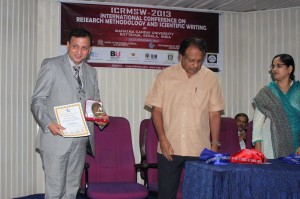
Dr. Simkhada is also co-supervisor of HSC PhD student Ms. Sheetal Sharma. Sheetal Sharma’s poster presentation recently won the best poster prize at a conference in Birmingham for the poster Getting women to care in Nepal: A Difference in Difference analysis of a health promotion intervention. Sheetal is supported by Bournemouth University with a studentship and a Santander grant.
Dr. Simkhada has published over 70 research articles on issues such as reproductive and sexual health, migration and sex trafficking and maternal and child health. Furthermore, he has been working to improve the quality of health research among higher education institutions in Nepal.
This Global Health Research Award for Dr. Simkhada has been reported widely in the media in India, Nepal and in England.
Prof. Edwin van Teijlingen
Centre for Midwifery, Maternal and Perinatal Health
BU paper in top ten in the international journal Midwifery
The paper ‘Risk, theory, social and medical models’ published in 2010 co-authored with Dr. Helen Bryers made it into the top ten most downloaded articles in the past 90 days from the journal Midwifery. See http://www.journals.elsevier.com/midwifery/most-downloaded-articles/
It is also in the top 12 most quoted papers published in Midwifery. This interesting as all 11 papers that have been cited more often are older, i.e. have been in print longer and therefore had more time to be cited.
The Abstract of the paper reads:
Background: there is an on-going debate about perceptions of risk and risk management in maternity care. Objectives: to provide a critical analysis of the risk concept, its development in modern society in general and UK maternity services in particular. Through the associated theory, we explore the origins of the current preoccupation with risk Using Pickstone’s historical phases of modern health care, the paper explores the way maternity services changed from a social to a medical model over the twentieth century and suggests that the risk agenda was part of this process. Key conclusions: current UK maternity services policy which promotes normality contends that effective risk management screens women suitable for birth in community maternity units (CMUs) or home birth: however, although current policy advocates a return to this more social model, policy implementation is slow in practice. Implications for practice: the slow implementation of current maternity policy in is linked to perceptions of risk. We content that intellectual and social capital remains within the medical model. © 2010 Elsevier Ltd.
The full reference this paper is MacKenzie Bryers, H. & van Teijlingen, E. (2010) Risk, theory, social and medical models: A critical analysis of the concept of risk in maternity care. Midwifery 26(5): 488-496.
Prof. Edwin van Teijlingen
Centre for Midwifery, Maternal & Perinatal Health
Realities of fieldwork: Sheetal Sharma, HSC PhD student on fieldwork in rural Nepal.

Open air focus group in rural Nepal, (c) Sheetal Sharma 2013.
Roosters crowing, cows mooing, bleating goats, birds chirping, mobile phones ringing, children screaming, laughing and running around while women, breastfeeding, talk over one another excitedly in the sun as they need to leave us soon to drop the children off to school and/or head to the field to cultivate the season’s crop this spring it is wheat, last summer, rice. Women do this work as most of their husbands are away in the capital, Kathmandu or in the Arab Gulf. This is the reality of conducting focus groups in rural Nepal.
Although we, as researchers, spend considerable time to perfect the ideal ‘tool’ of the interview schedule and imagine the transcription clear and the background; a researcher must be prepared for every eventuality. Noise, din and interruptions: Today a dog nibbled on a nearby goat and a few men kept creeping to listen in why was this videshi (foreigner) recording conversations and making notes. The women shooed them away as today was a discussion on contraception; also that the discussion of the focus groups should be in ‘controlled environment’, safe, quiet; and in Nepal where women are not the main decision-maker for their reproductive health, it should mean a lieu women should be able to discuss freely these issues. In this Green Tara’s (www.greentaratrust.com) intervention area, which my PhD, supervised at HSC BU by Catherine Angell, Vanora Hundley, Edwin van Teijlingen and University of Sheffield’s Padam Simkhada, aims to evaluate both quantitatively and qualitatively, shows one the decision-making outcomes improved: increased the use of contraception in the Pharping area from 4.3% (2008) to 24.6% (2012) after 5 years of health promotion conducted by two auxiliary nurse-midwives.
40 minutes later recording (with 2 digital recorders) and once the demographic data and recording is double-checked and any last questions answered we set off walking 2 hours downhill visiting a tea-shop on the way for a cup of chai.
Edwin van Teijlingen and Emma Pitchforth, Qualitative Research: Focus group research in family planning and reproductive health care J Fam Plann Reprod Health Care 2006;32:1 30-32doi:10.1783/147118906775275299
http://jfprhc.bmj.com/content/32/1/30.citation
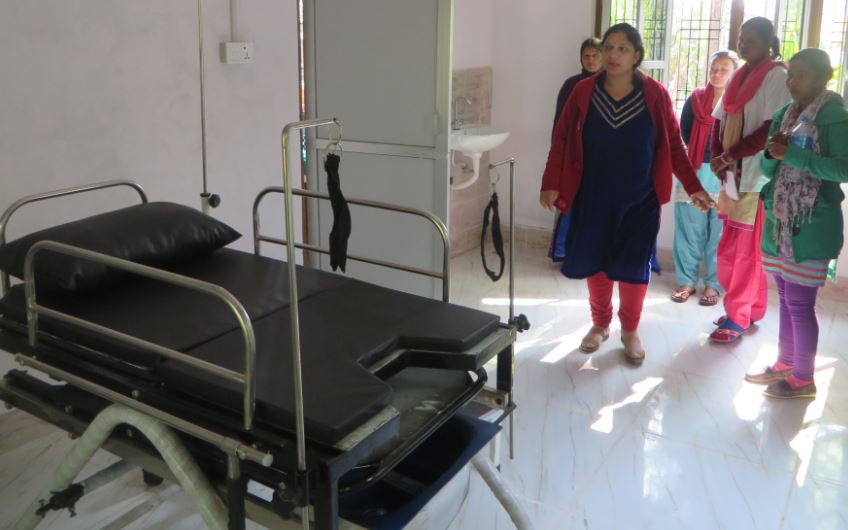
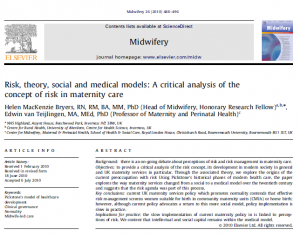











 Dr. Ashraf cited on ‘Modest Fashion’ in The Guardian
Dr. Ashraf cited on ‘Modest Fashion’ in The Guardian NIHR-funded research launches website
NIHR-funded research launches website Academics write for newspaper in Nepal
Academics write for newspaper in Nepal New paper published on disability in women & girls
New paper published on disability in women & girls Global Consortium for Public Health Research 2025
Global Consortium for Public Health Research 2025 MSCA Postdoctoral Fellowships 2025 Call
MSCA Postdoctoral Fellowships 2025 Call ERC Advanced Grant 2025 Webinar
ERC Advanced Grant 2025 Webinar Horizon Europe Work Programme 2025 Published
Horizon Europe Work Programme 2025 Published Horizon Europe 2025 Work Programme pre-Published
Horizon Europe 2025 Work Programme pre-Published Update on UKRO services
Update on UKRO services European research project exploring use of ‘virtual twins’ to better manage metabolic associated fatty liver disease
European research project exploring use of ‘virtual twins’ to better manage metabolic associated fatty liver disease
Explore our work, meet our partners, and find out how you can collaborate with us by clicking here! MIHERC is led by Sheffield Hallam University, with Bournemouth University as a key partner and the important funding coming from NIHR (National Institute for Health and Care Research) Maternity Challenge Initiative. The BU key academics are: Huseyin Dogan, Vanora Hundley, Edwin van Teijlingen, and Deniz Çetinkaya. Please share with all who may be interested.